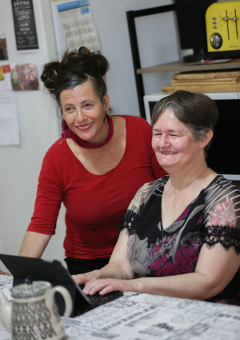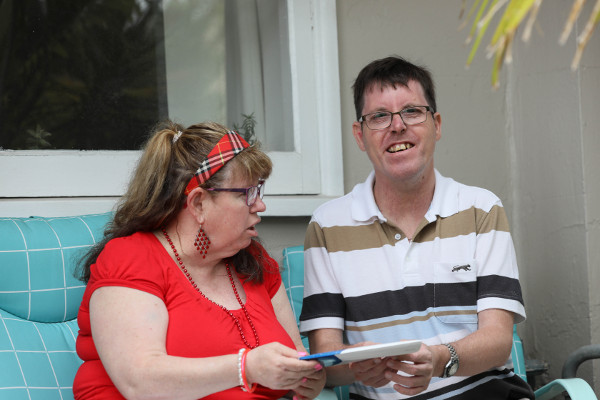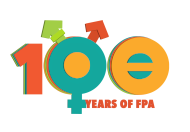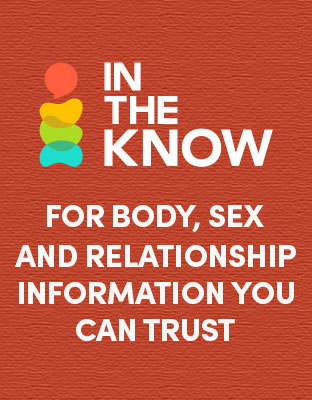Why is testing important?
In this section of the learning program we will discuss why it is important for people to participate in:
- cervical screening
- breast screening (mammogram)
- bowel screening
Cervical Screening
What is cervical cancer?
Cervical cancer is the growth of abnormal cells in the lining of the cervix. Over 99% of cervical cancer is caused by certain types of the human papilloma virus (HPV). HPV is a common sexually transmitted infection and most people have HPV at some time in their lives. Most HPV infections clear up by themselves without causing any problems. In Australia, we have a successful National HPV Vaccination Program for young girls and boys. This prevents infection with the types of HPV which are most commonly linked with 75% of cervical cancer (types 16 and 18).
The Cervical Screening Test

The Cervical Screening Test is the best way to detect HPV. The Cervical Screening Test is a simple procedure to check the health of a person's cervix. It involves an examination of the cervix using a speculum so that the cervix can be seen properly to take the sample of cells for HPV testing. The sample is collected using a special brush which is then placed in a container of liquid and sent to the pathology laboratory for testing.
If a person's test is positive for any high risk types of HPV they will be referred for an examination called a colposcopy (a close examination of the cervix under magnification). If any cell changes are found a biopsy can be taken.
The doctor or nurse will explain what to expect if a person has a positive Cervical Screening Test.
The Cervical Screening Test is available at:
- general practices
- community health centres
- women's health centres
- Family Planning NSW clinics
- sexual health clinics
- Aboriginal Medical Services
Who should have the test?
Everyone with a cervix aged 25-74 years should have a cervical screening test every 5 years. A letter will be sent to remind a person they are due for their next test.
Breast Screening
What is breast cancer?
Breast cancer is a collection of cells in the breast tissue that grow in an uncontrolled way. While the causes of breast cancer are not fully understood, there are a number of risk factors associated with developing the disease. These include:
- being a woman
- increasing age
- having a strong family history of breast cancer
- a number of hormonal factors, child bearing history, personal and lifestyle factors
The breast screening test

The breast screening test is more commonly known as a mammogram. A mammogram is the best way to detect breast cancer early, before any symptoms are noticed. A mammogram can find very small cancers – the size of a grain of rice – before they can be felt or noticed by you or your doctor.
Who should have the test?
Breast screening is recommended for women aged 50 – 74. BreastScreen NSW invites women to have their first screening mammogram at age 50. They will then receive a letter every two years to remind them to have their next screening mammogram.
Bowel Screening
What is bowel cancer?
Bowel cancer develops when cells in the bowel lining grow too quickly, forming a clump known as a polyp. Polyps are usually not cancerous, but most bowel cancers develop from these tiny growths. There are many different risk factors for bowel cancer. The risk is greater for people who:
- are 50 and over
- are over weight
- have a poor diet
- have two or more alcoholic drinks per day
- have a strong family history of bowel cancer or polyps
- have had an inflammatory bowel disease such as Crohn's disease or ulcerative colitis
- have previously had a polyp in the bowel
The bowel screening test

The bowel screening test is the best way to detect bleeding from the lower bowel, which is often not visible and may be the first sign of bowel cancer. A screening test called a Faecal Occult Blood Test (FOBT) is used to collect samples of faeces, which are then analysed to detect tiny traces of blood invisible to the naked eye. The screening test cannot diagnose bowel cancer, but the results will indicate whether a further test (usually a colonoscopy) is needed to rule out bowel cancer. The bowel cancer screening test is easy, quick and can be done in the comfort of the home.
Who should have the test?
People aged 50 – 74 will be sent a free, easy to use screening kit from the National Bowel Cancer Screening Program every two years.




